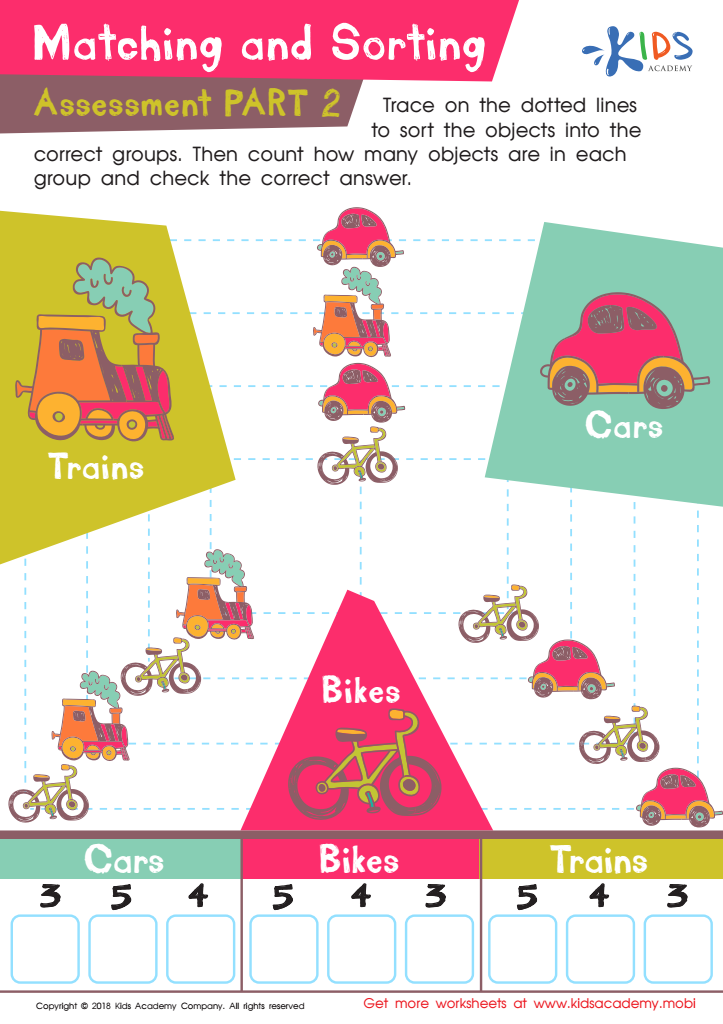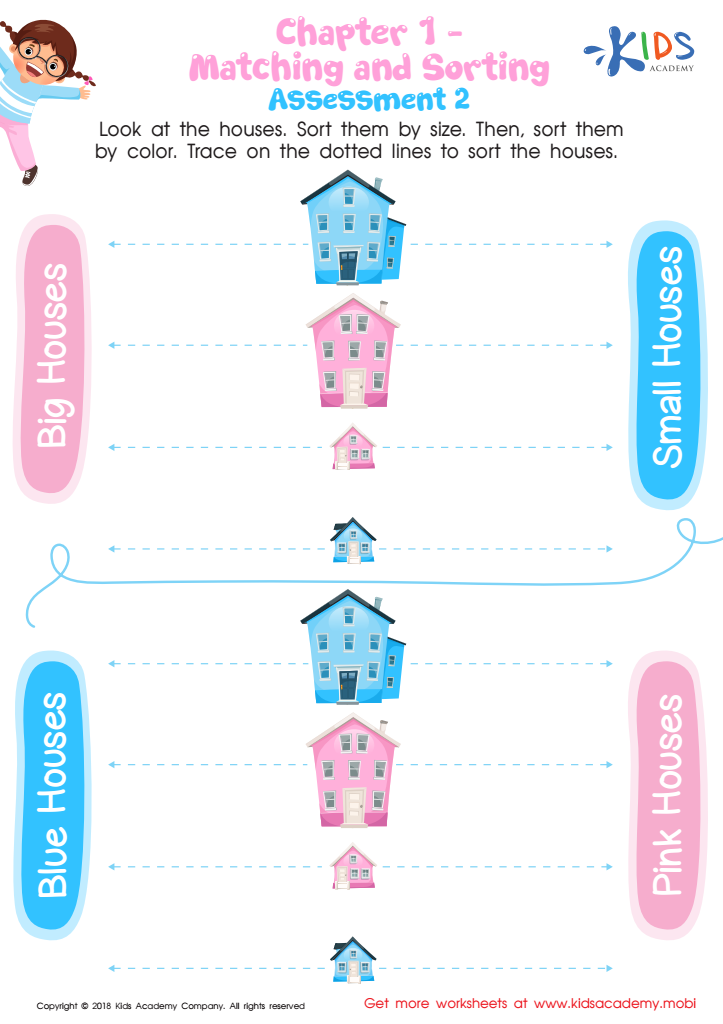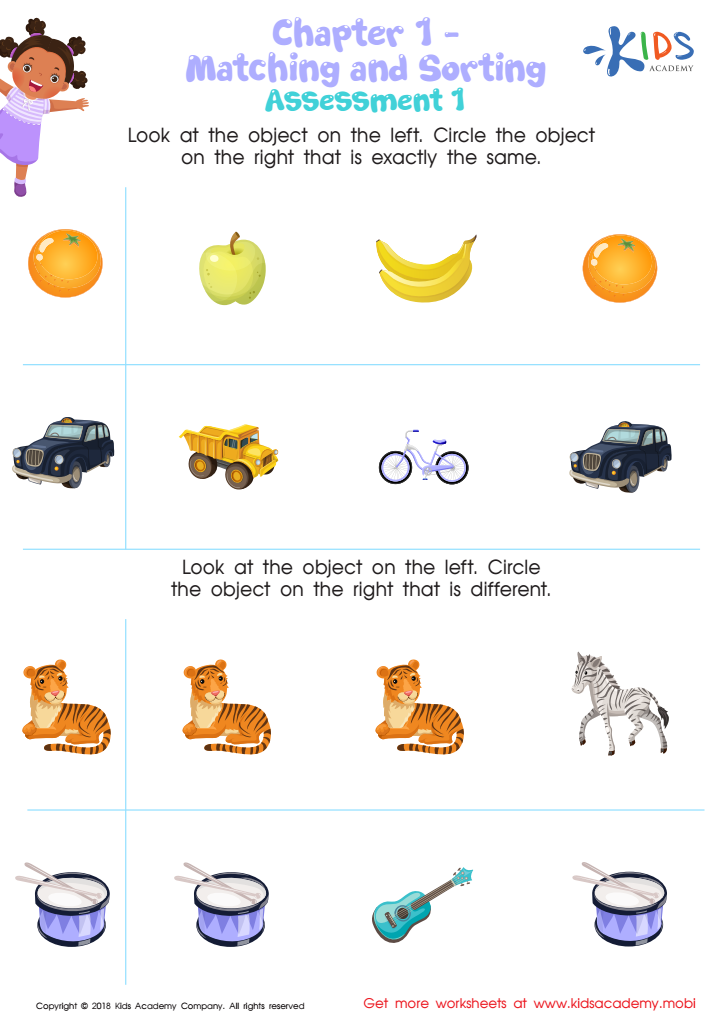Comparing Fractions Sorting Worksheets for 5-Year-Olds
3 filtered results
-
From - To
Welcome to our Comparing Fractions Sorting Worksheets for 5-Year-Olds! Designed for early learners, these engaging worksheets help children grasp the concept of comparing fractions in a fun and interactive way. Through colorful visuals and hands-on sorting activities, kids will enhance their understanding of basic fractions while developing critical math skills. Each worksheet encourages independent thinking and problem-solving, making learning enjoyable. Perfect for home or classroom use, our resources support young learners as they build a strong foundation in mathematics. Download your free worksheets today and inspire a love for math in your little ones!


Matching and Sorting for Kindergarten: Assessment 2 Worksheet


Matching and Sorting for Preschool: Assessment 2 Worksheet


Matching and Sorting for Preschool: Assessment 1 Worksheet
Comparing fractions is a fundamental mathematical skill that lays the groundwork for future learning, making it essential for parents and teachers of 5-year-olds to prioritize this concept. At this young age, children are developing their understanding of numbers and basic operations. Introducing comparing fractions in a playful and engaging way can stimulate their critical thinking and reasoning skills.
Sorting fractions helps children recognize the relationships between parts and wholes, enhancing their understanding of quantities. It encourages them to visualize size differences, promoting spatial awareness. Early exposure to these concepts makes abstract ideas more concrete, aiding in long-term retention.
Moreover, this activity fosters collaboration and communication, as children often work in pairs or groups to compare fractions. They learn to articulate their reasoning and consider different perspectives, which builds social skills. Incorporating comparing fractions sorting into learning activities also links mathematics to real-life situations, as children encounter fractions in everyday contexts like sharing food or dividing toys.
In essence, emphasizing comparing fractions in early education nurtures a child's cognitive development, enhances problem-solving skills, and prepares them for more complex mathematical concepts in the future. Parents and teachers play a pivotal role in making these foundational ideas accessible and enjoyable.
 Assign to My Students
Assign to My Students
















